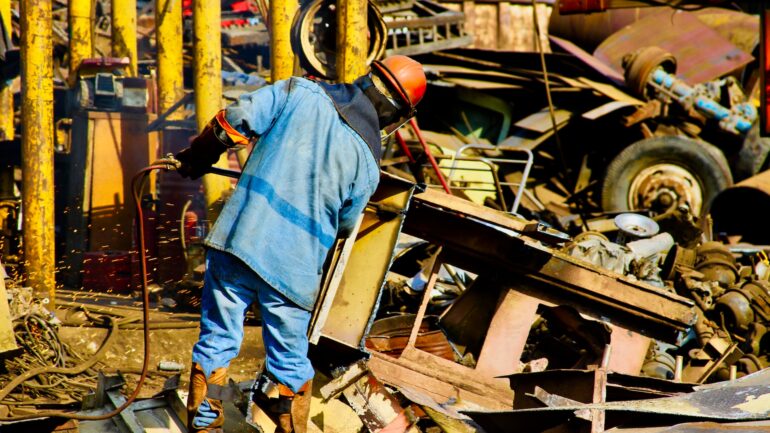Metal recycling is a process of processing scrap metal into valuable products. It helps to reduce greenhouse gas emissions, manage energy consumption and conserve natural resources.
The recycling metal market is anticipated to expand significantly during the forecasting period. This growth is attributed to the rise in construction activities across various regions.
Recycling Process
Metal recycling is a crucial way to help prevent environmental degradation and reduce the use of natural raw materials. Moreover, it creates jobs and saves on the cost of producing new metal.
Commercial metal recycling near me Sussex County NJ involves using large furnaces to melt different kinds of scrap. These furnaces are specially designed for each type of metal, and to cut down on the energy used; they frequently use fuel-efficient regenerative burners.
Once the metal is melted, it is purified and carried by conveyor belts to a cooling chamber. Finally, the metal is cooled and solidified into bars that can produce various metal products.
When scrap is recycled, it helps to minimize the need for raw materials like ore and coal. It, in turn, reduces the amount of resources needed and cuts down on greenhouse gas emissions. It also helps to create jobs and increase the economy as a whole.
Recovery Rate
Ferrous metals such as steel and iron are the most common types of recycled metal, but non-ferrous metals like copper are also precious. They may therefore be utilized for various applications and are often found in numerous items.
Depending on the materials used and their availability, recovery rates vary. However, it can be essential in scrap recycling, as it determines how much cash you can expect from your scrap metal.
The most critical factors determining the recovery rate for commercial metal recycling are the type of scrap and the equipment used in the process. The higher the efficiency of the entire chain (dismantling, mechanical pre-treatment, and metallurgical recycling), the more effectively metals can be recovered.
Environmental Impact
Recycling is a sustainable method for saving energy and conserving resources. It requires significantly less energy than creating new metal products from virgin ores.
Despite their high demands, metals are finite resources. Moreover, mining new virgin metal ores uses significant energy and is environmentally damaging to the planet.
The mining process also causes air pollution and soil contamination. In addition, it requires massive amounts of energy to extract raw materials, and recurrent mining depletes the mined ores and leaves holes in the earth.
Recycling scrap metal can save up to 75% of energy and 40% of water compared to creating new metal from raw ores. For example, manufacturing one ton of recycled aluminum saves 21,000 kw hours.
Economic Impact
Commercial metal recycling is an excellent way for companies to save money on their disposal fees and earn a return on the items they no longer need. In addition, it is a more environmentally friendly solution than simply dumping scrap metal into landfills.
By decreasing the volume of garbage dumped in landfills, metal recycling helps to conserve valuable natural resources. It also saves manufacturers money on raw materials and energy costs, allowing them to increase their profits and compete in the global market.
Moreover, the metal recycling industry generates significant tax revenue for the government. This income is pumped back into the economy to support local businesses and community activities.
While these benefits are apparent, there are other ways in which commercial metal recycling contributes to economic growth and prosperity. For instance, it creates new jobs. In addition, it creates a ripple effect that can help the entire industry grow.





